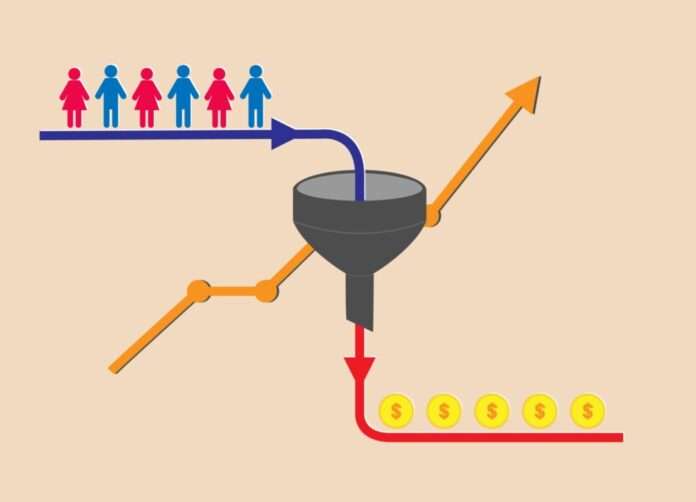As the sales industry continues to evolve, so do sales strategies and techniques to help sales teams attract new customers and retain existing ones. Many traditional sales tips and tricks no longer work and create confusion. The incorporation of artificial intelligence could in some way improve many of the problems facing sales today.
AI helps salespeople
Over the years, artificial intelligence has been applied to various industries, and now it is giving birth to super salespeople. Gone are the days of contacting customers by making automated voice calls. Now, even novice salespeople can persuade potential customers to buy products and services as adeptly as those who have been on the job for a decade, thanks to artificial intelligence.
In a sales field that doesn’t rely on things like hosting events and visiting prospects, finding virtual ways of doing business that many people may not be very familiar with requires new solutions and sales techniques. It’s a data-driven, AI-driven approach to selling that helps sellers learn more about potential buyers, build trust, ensure more meaningful conversations, and better track relationships with prospects. In short, AI-enabled sales techniques have fundamentally changed the way sales are done.
All-purpose data
In a world driven by sales technology, automation is more than just workflow. AI and its subfields are helping sales teams control channels, productivity and performance.
In the midst of the COVID-19 pandemic, people are buying things more emotionally. This can easily lead to discrepancies between potential buyers’ intentions and sellers’ needs. By using artificial intelligence and machine learning techniques, salespeople can more easily identify prospects who are genuinely interested and stop contacting those who are not.
AI systems can even answer potential customers’ questions by analyzing their language and facial features, extracting relevant information, and tracking their feedback for accurate customer profiles to guide them through their problems.
The pandemic has put sales teams under pressure to achieve sales performance, and sales leaders also need to use data to analyze opportunities that can accelerate sales and replicate success across the sales force. This is where artificial intelligence comes in. It provides managers with the right data to analyze sales opportunities, speed up sales and improves overall productivity.
Enhance real-time work
In most cases, sales teams need to turn prospects into customers, which is a long and arduous development phase during which sales struggle to address the actual problem of the prospect. To avoid this, businesses need to get a development checklist with the help of artificial intelligence, which will increase the chances of sales conversion. At the same time, content about best practices in the industry the prospect is in helps the sales team understand what to focus on to attract the prospect. AI will effectively help salespeople demonstrate empathy and expertise, allowing them to better engage with potential customers in a meaningful way.
By making the best use of resources, AI can improve the job of salespeople to identify prospects by providing relevant information about prospects in real-time. This enables salespeople to have more meaningful conversations and build stronger relationships with prospects and customers.
Additionally, salespeople want to engage with prospects in the right way at the right time, and they don’t want to log activities, schedule meetings back and forth, or update records with new contact information. Machine learning can handle all these trivial yet necessary tasks for salespeople, with algorithms that can extract, process, and learn from vast amounts of sales data. Models can analyze sales activity and customer data at scale, generate deeper insights and even automate actions.
Building bridges
Selling is often viewed as a relationship business. Relationship building is critical, and without it, customers are often little more than names to salespeople. To develop a true relationship, salespeople need to provide a personal and human touch. Using data collated by salespeople for predictive analytics, artificial intelligence and machine learning can deliver personalized proposals to improve the one-to-one connection between salespeople and customers.
Having said that, simply collecting sales data and customer information is not enough. Salespeople can employ AI to capture data and analyze it to create more accurate sales targets that can be updated in real-time. By employing artificial intelligence technology, it is possible to observe how customers feel at all levels of the sales process.
AI can even act as a real-time coach for salespeople on calls with prospects. Efficient AI tools combine intelligent sales enablement, streamline tasks, and help salespeople conduct productive meetings while also implementing follow-up.
The future of AI sales
It can be said that a sales team without artificial intelligence is an entity without a future. Today, AI does most of the heavy lifting for many successful sales teams. The main disadvantage of sales organizations that engage prospects and customers without machine learning insights is that they will miss out on opportunities to achieve the best business outcomes.
The advantages of artificial intelligence lie in better sales, better customer service, and decreased customer churn, and investing in artificial intelligence can pay off handsomely.
AI technology is an organization’s best-hidden asset, making it an integral part of the sales mix of any organization.


